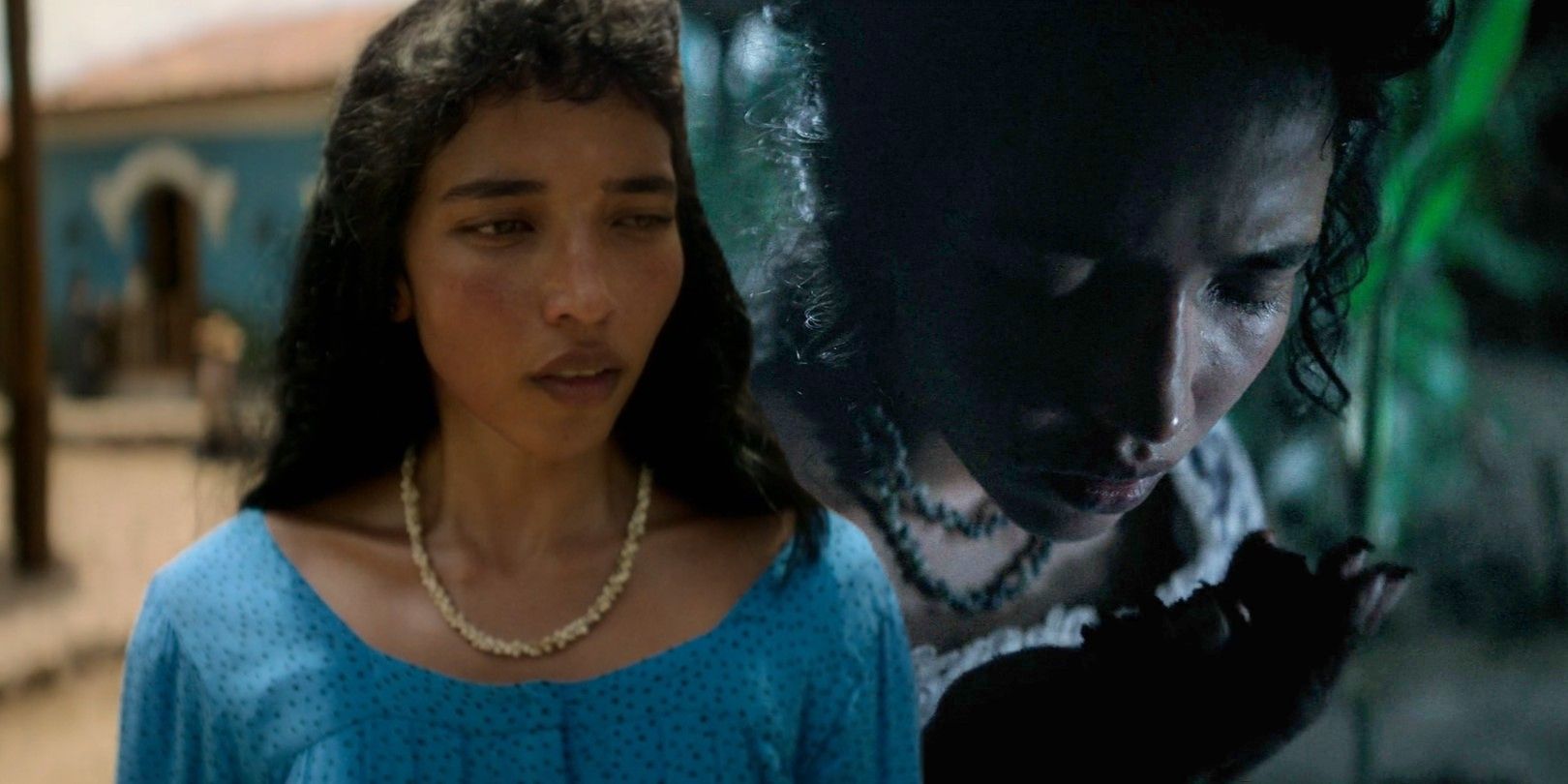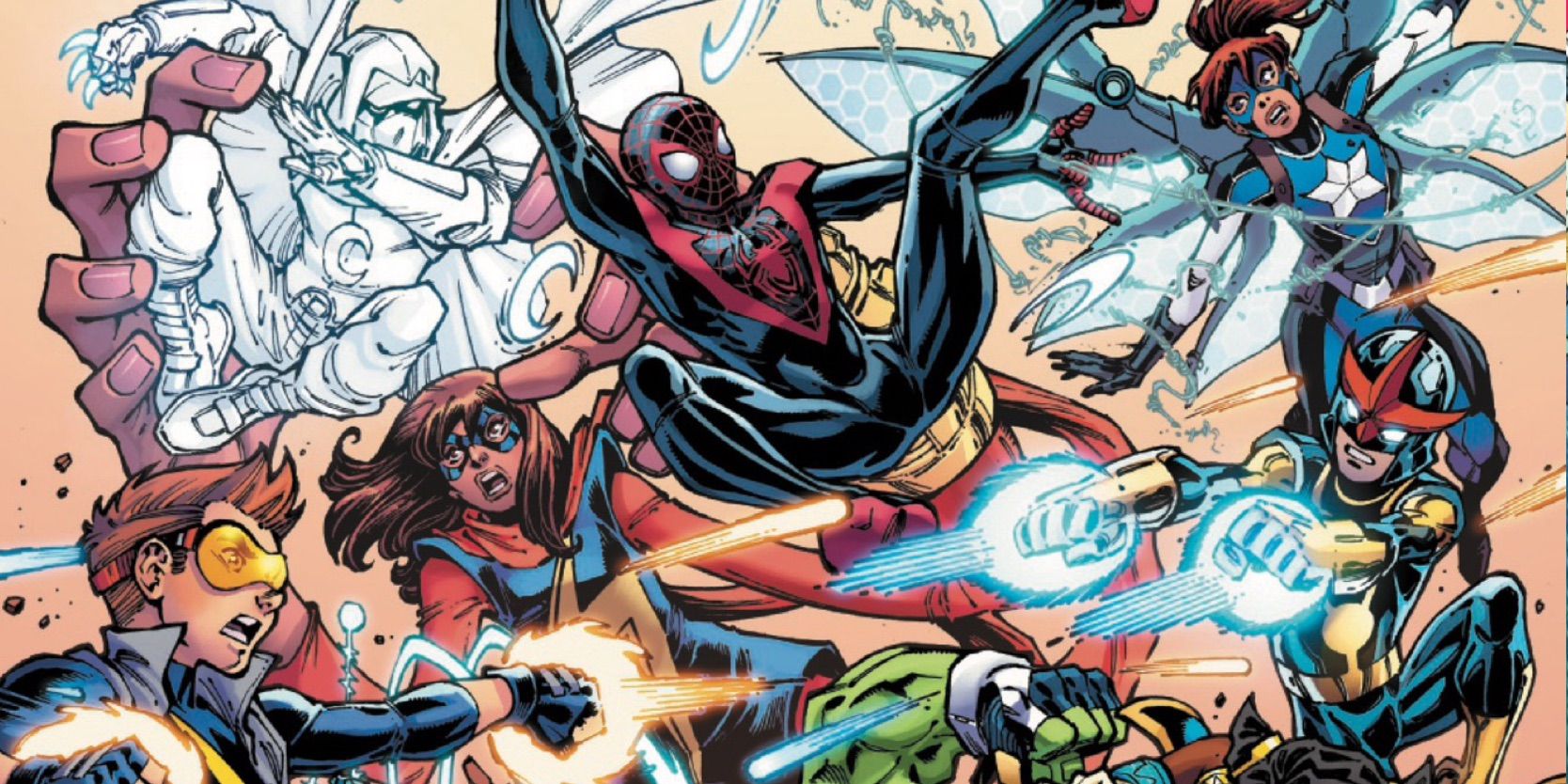Why Rebeca Eats Dirt In One Hundred Years Of Solitude
This article contains discussion of self harm.
In Netflix's adaptation of One Hundred Years of Solitude, Rebeca Buendía (Akima Moldonado) frequently ate dirt, and there wasn't a very clear explanation why. One Hundred Years of Solitude is, as the name suggests, a tragedy that follows several generations of the Buendía family and their time in the Colombian town of Macondo. It also features a literary style known as magical realism, so there are plenty of moments in One Hundred Years of Solitude that are both hard to explain and extremely sad to watch. One such moment is Rebeca's penchant for eating dirt.
Rebeca is one of the most confusing characters in One Hundred Years of Solitude. As a distant cousin of Úrsula Iguarán, she doesn't fit neatly into the Buendía family tree, and it's not entirely clear where she came from. She also arrived in Macondo carrying a bag filled with her parents' bones that sometimes rattled around, which only made her stranger. Perhaps the most odd thing about Rebeca is a habit she carried into adulthood: eating dirt. One Hundred Years of Solitude didn't outright explain why Rebeca ate dirt so much, but there are a few reasons.
Rebeca Has Eaten Dirt Since She Was A Child
Rebeca Likely Started Eating Dirt Because She Was Afraid Of The Buendía Family
When she first arrived at the Buendía house, Rebeca began eating dirt instead of food. Rebeca had refused to eat any of the food Úrsula made for her, probably because she was afraid of being put into a new family she had never met before. It seems that Rebeca began eating dirt because she was hungry, but she didn't trust the Buendía family enough to eat their food. It was only after Úrsula force-fed Rebeca some soup that she finally stopped eating dirt, at least for a while.
Related Is Macondo A Real Town? One Hundred Years Of Solitude's Location Explained One Hundred Years of Solitude is centered around the enchanting town of Macondo, but is it an actual place? Here's what we know about it.
As with everything in One Hundred Years of Solitude, there are also layers of metaphor for every literal action in the story. Aside from sating her hunger, eating dirt likely helped Rebeca feel closer to her deceased parents. Dirt is often associated with death and the dead, and there's likely quite a bit of significance to the fact that Rebeca's parents weren't buried, and their bones were placed in a sack instead. Rebeca's penchant for eating dirt likely symbolizes how grief from a significant death, like the one Rebeca experienced, can follow a person throughout their life.
Rebeca Eats Dirt As An Adult When She’s Distressed
Eating Dirt Is Likely An Unhealthy Way To Cope With Stress For Rebeca
Once Rebeca became an adult, her dirt-eating habit returned. When she couldn't be with Pietro Crespi (Ruggero Pasquarelli) at the family party, Rebeca ran out into the courtyard and began eating dirt again. As the narrator explained, "the handfuls of earth made her feel closer to the only man worthy of such a display of degradation." It seems that as an adult, Rebeca ate dirt because it was an unhealthy way for her to cope with stress. It's possible eating dirt was even a form of self-harm for Rebeca, and that degrading herself helped her calm down.
It's possible eating dirt was even a form of self-harm for Rebeca, and that degrading herself helped her calm down.
The times when Rebeca began eating dirt again support the idea that it was a method of self-harm. Rebeca frequently ate dirt when her relationship with Pietro began deteriorating, such as when their wedding was delayed and when José Arcadio came back home. She also resumed eating dirt after José Arcadio was murdered at the end of One Hundred Years of Solitude, which was yet another moment that gave her extreme grief. Rebeca's penchant for eating dirt seems to be one of the many negative consequences the Buendía family suffered in One Hundred Years of Solitude.











COMMENTS